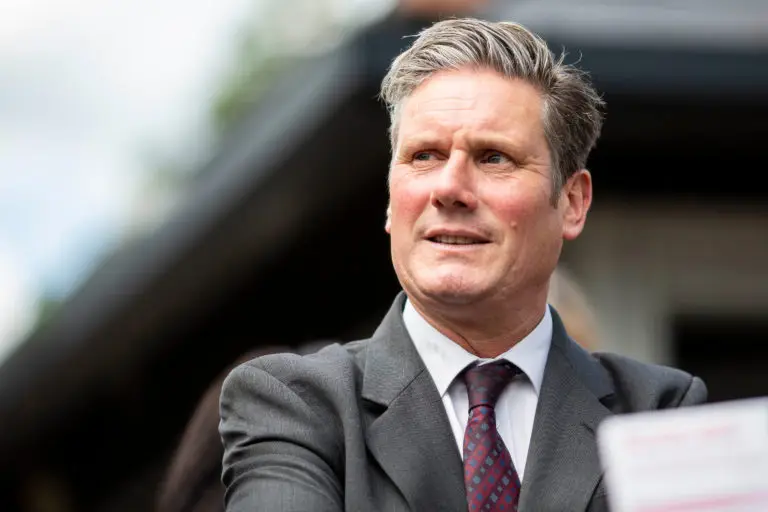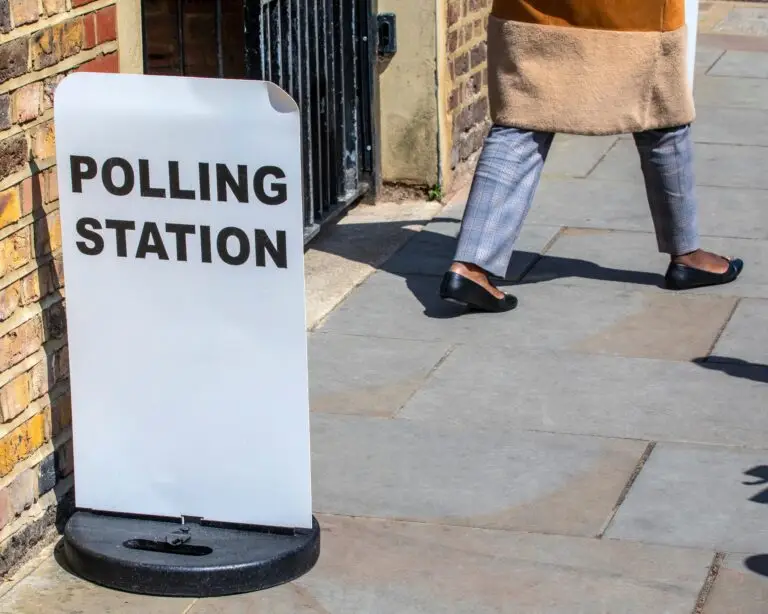On Thursday 23rd February, Keir Starmer spoke from the Co-Operative’s HQ in Manchester to outline Labour’s approach to deliver a ‘mission-driven’ government which would seek to end ‘sticking plaster politics.’
The party has said the national missions will be used to build their next manifesto and the missions align with the party’s National Policy Forum commission areas which forms the formal policymaking process for the party.
Each mission will include a ‘route map’ with a measurable goal and policy plan to guide the party’s plans. Details for the first two missions will be published imminently, followed by the following three over the coming months.
Labour’s five missions, follows Sunak’s own five-point plan unveiled in January 2023. In recognition of this, Starmer said: “I will put my five long term missions for national renewal up against Rishi Sunak’s five promises to clean up his own mess – and the public can decide which of those they want.” Meanwhile it could be suggested that the mission-driven approach to government echoes Michael Gove’s Levelling Up white paper with its own cross-government missions.
Labour has faced criticism that the missions lack the policy detail needed for voters to put their trust in Labour whilst Starmer has been challenged that the missions he outlined today are incompatible with the pledges he made in the Labour Leadership Contest. In response the Party says it is setting out its vision for the country with the policy to follow, pointing out that it needed to prioritise in government to deliver on key pledges.
Moving forward, as Labour outlines the details within each missions, the Party will be hoping they will help shape the conversation over the next 18 months in advance of the next general election, driving media coverage and conversations on the doorstep.
Labour will hold five more events to set out each mission in more detail before the end of the summer. Two events will take place before the local elections in May and three will take place later in the summer. The first event, outlining details on the economic growth mission will take place in London on Monday 27th February.
Relevant links
Labour’s briefing document on the missions is here.
Keir Starmer’s speech can be read here.
-
Secure the highest sustained growth in the G7…
“….with good jobs and productivity growth in every part of the country making everyone, not just a few, better off.”
The first of Starmer’s five pledges is to “secure the highest sustained growth in the G7”, promising to create good jobs and stronger productivity in every region of the UK. He emphasised the word “sustained”, insisting that Labour-led growth would drive up living standards in the longer term and be driven from the grassroots in communities across the country. The biggest drivers of the party’s economic plan are the £28bn green investment fund, an industrial strategy and plans for devolution. The pledge shows the ambition of Starmer, and Shadow Chancellor Rachel Reeves, as they seek to prove Labour’s economic competencies and business acumen.
In a bid to broaden Labour’s appeal to voters, Starmer said that his approach to the economy would be neither “state control” nor “pure free markets”, insisting that he is “not concerned” about whether investment originates from the private or public sector. Indeed, he maintained that there would be a role for the private sector under his “mission-driven” Labour Government, though guaranteed that communities would retain “robust power” to control private sector growth through a new ‘take back control’ bill.
Starmer has faced criticism that his economic plan is reticent about detail and denied that he had broken promises on common ownership, though insists that the party’s position is bound by changing circumstances, including the ongoing war in Ukraine, the impact of the coronavirus pandemic and Liz Truss’ “kamikaze budget”. There are also doubts over the extent to which a Labour Government could achieve the highest growth in the G7 without re-joining the EU Single Market and Customs Union.
Questions over the party’s fiscal policy remain too. While Starmer has previously said that the UK’s tax burden is too high for working people, it is not yet clear how he will make the tax system fairer or if the party will introduce a wealth tax.
-
Make Britain a clean energy superpower…
“…to create jobs, cut bills and boost energy security with zero-carbon electricity by 2030, accelerating to net zero.”
In his speech Keir Starmer said: “Zero-carbon British electricity by 2030. A huge goal that will allow us to accelerate to net zero. Make no mistake – this goal would turn Britain into a clean energy superpower. It puts us ahead of any major economy in the world.”
Mission 2 is, arguably, Labour’s only truly measurable pledge out of the five so far, with a commitment to reach zero-carbon electricity by 2030. It is, in Starmer’s own words, a ‘sharp intake of breath’ pledge, and admits people in the industry are sceptical that it can be achieved, even with a vastly more attractive policy and investment landscape. With a General Election not expected to be held until October 2024, Starmer has, in effect, given himself just five years to achieve this goal.
While the UK has already exceeded 50% renewable power, making up the remaining shortfall will require not just a huge rollout of new generation, but also major new grid infrastructure, not to mention a supply chain which can deal with a sharp increase in demand, and a skilled workforce which can deliver the scale of new projects.
Nonetheless, no one can doubt the ambition of what he and the Labour Party want to achieve and it is significant that this will be a key plank of the forthcoming manifesto. Over the past year, Labour’s commitments have included: investing £28 billion every year into the ‘green economy’; insulating 19 million homes; establishing GB Energy; quadrupling offshore wind, tripling solar, and doubling onshore wind while also supporting nuclear, hydrogen and tidal; reforming planning laws; and delivering a ‘green’ industrial strategy.
Starmer’s ambitions are certainly lofty, and the barriers to achieving his targets in this area are not insignificant, but this is a serious message of intent which could help rebuild the sector’s confidence.
-
Build an NHS fit for the future…
“…by reforming health and care services to speed up treatment, harnessing life sciences and technology to reduce preventable illness, and cutting health inequalities.”
Starmer announced that the party would focus on prevention and capacity in its NHS mission. Referencing the recent winter, Starmer reflected that each winter had become a crisis for the NHS with the ‘same panic and despair in life and death’ each year. Starmer said the government needed to move beyond quick fixes for the NHS, to a new vision.
Starmer referenced the party’s plans for expanded numbers of doctors and nurses, and explore opportunities for innovation in health care saying, ‘Some nation will design medicines personalised to match our unique DNA. Why not Britain?’
On prevention, Starmer said, ‘you can’t make healthier lives without people changing their habits,’ but provided little detail on Labour’s proposed approach. Labour are planning to publish their full plans on the NHS in the coming months.
-
Make Britain’s streets safe…
“…by reforming the police and justice system, to prevent crime, tackle violence against women, and stop criminals getting away without punishment.”
On crime, Starmer has set out Labour’s mission as being to “Make Britain’s streets safe”. He aims to do so “by reforming the police and justice system, to prevent crime, tackle violence against women, and stop criminals getting away without punishment”. Echoing Labour’s last election winner Tony Blair, Starmer claimed that Labour would be “tough on crime, tough on the causes of crime”. “Now you’ve heard that before”, he said, “but it’s right”.
Quoting Tony Blair will do little to dispel criticism that he has moved to the right and abandoned the pledges made during his leadership campaign, however Starmer will hope that crime is another area where he can tap into widespread public dissatisfaction. As police forces across the country continue to grapple with a series of high-profile scandals and failures, particularly around how the police protect women, Starmer’s commitment to tackle violence against women and ensure crimes do not go unpunished seems perfectly targeted to focus on an area of broad concern amongst the public.
It furthers his commitment at the top of his speech to “fix the fundamentals” and tackle the basic issues that affect people’s everyday lives, with Starmer able to leverage her personal experience in this area as a former Director of Public Prosecutions. The mission reinforces Labour’s approach to crime set out last week by Shadow Home Secretary Yvette Cooper, and by Shadow Justice Secretary Steve Reed. Labour plans to outline its specific policy proposals for this mission over the coming months, with the party expected to place tackling crime as a key policy for May’s local elections.
-
Break down the barriers to opportunity at every stage…
“…for every child, by reforming the childcare and education systems, raising standards everywhere, and preparing young people for work and life”
Starmer’s education pledges revolve around a central aim, to “break down barriers to opportunity.” This will be achieved primarily through “reforming childcare, reforming education, [and] raising standards everywhere.” Overall, the Labour leader envisages a system which will “[prepare] young people for work and for life.” During today’s speech, details on how this will be enacted were sparse. Indeed, the party has said that “measurable goals” will be laid out for education “over the coming months.”
Of late, Labour’s most tangible pledges have been in the Early Years and Childcare space. During the Q&A section of today’s speech, Starmer noted “childcare unlocks not just the potential of children… but the potential of parents.” He thus stated that support with childcare is “central” to the party’s missions; not just for removing barriers for children but in enabling economic growth and allowing parents to re-enter the workforce. In referencing the Party’s pledges on extending breakfast clubs, Starmer did also conclude that “more needs to be done” in this area.
Shadow Secretary of State for Education Bridget Phillipson has previously pledged to offer comprehensive support from the end of parental leave through all primary school years, and recently returned from a trip to Australia where she studied how Anthony Albanese’s Labor Party pledge to make childcare more affordable may have helped swing his election victory last year. The Party’s other key education pledge – to challenge the VAT exemption for independent schools – was absent during today’s wide-ranging speech. For reference, PLMR provided an overview of Labour’s public stances on education issues late in 2022.
More widely, on BBC Radio 4 this morning, Starmer reflected on the foundational importance of education, as part of his wider pitch to promote a cross-cutting approach across government. He noted: “if you want to reduce crime, you have to get to grips with your education system… You have to recognise that the single biggest indicator of whether someone is going to end up in prison is whether they had difficulties at primary school and whether they were excluded at secondary school.” As such, we can surmise that education will indeed be a key cornerstone of the Labour manifesto, even if tangible details remain elusive at this stage.







